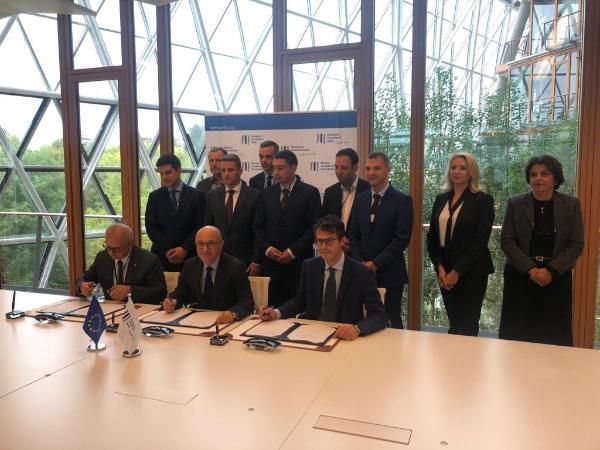
- The EIB has signed a EUR 35m loan to finance the sewerage system of the City of Belgrade, improving living conditions for 170 000 people in the Palilula Municipality
- The project aims to provide vital infrastructure to local residents and reduce pollution of the Danube River and groundwater via the construction of a wastewater treatment plant
- The EU bank also provided a technical assistance grant of up to EUR 1.1m for the preparation of the project under the Economic Resilience Initiative (ERI)
The European Investment Bank (EIB) is continuing to help improve environmental and social standards in Serbia with a EUR 35m loan to the City of Belgrade. The loan will finance the sewerage system and a wastewater treatment plant in the Municipality of Palilula, located on the left bank of the Danube River. The project will help provide better sanitation and living conditions for approximately 170 000 people, will contribute to reducing environmental pollution and will increase the EIB’s support for the environment sector in line with the EU strategy for the Western Balkans.
In addition to the EIB loan, the investment will benefit from a EUR 1.1m technical assistance grant, provided under the Economic Resilience Initiative (ERI) to support the City of Belgrade in better preparing and implementing the project. The remaining share of a total EUR 52m in financing will be provided by the municipal budget.
The loan was signed today in Luxembourg by Miguel Morgado, Director of the EIB’s Adriatic Sea Lending Operations Department, and Goran Vesic, Deputy Mayor of the City of Belgrade.
Miguel Morgado said: “We look forward to having this complex project completed as planned according to the best European standards, and to support other much needed, viable projects in the environment sector, thus contributing to climate action as a top priority. We are also happy to have mobilised a EUR 1.1m technical assistance grant under ERI. With its lending and advisory operations and in close cooperation with the European Commission, the EIB is continuing to contribute to the economic development and well-being of the people of the region and covering a wide range of strategic sectors, from connectivity to the environment."
Note for editors
EIB in Serbia and the Western Balkans
Since 2000, the European Investment Bank has lent more than EUR 5.4bn to Serbia, supporting transport and environmental infrastructure, health, education research and development and SMEs.
Economic Resilience Initiative
The Economic Resilience Initiative was created in 2016 in response to a call from the European Council. The objective of the initiative is to help shift patterns of migration in the medium to long-term and provide support to forcibly displaced populations by increasing the resilience of economies to future shocks. The ERI is doing this by mobilising finance to support growth, job creation, vital infrastructure projects and social cohesion in the EU’s neighbouring regions. It will provide an additional EUR 6bn of financing in the Southern Neighborhood and Western Balkans regions over the 2016-2020 period. This is expected to mobilise EUR 15bn of new investment.